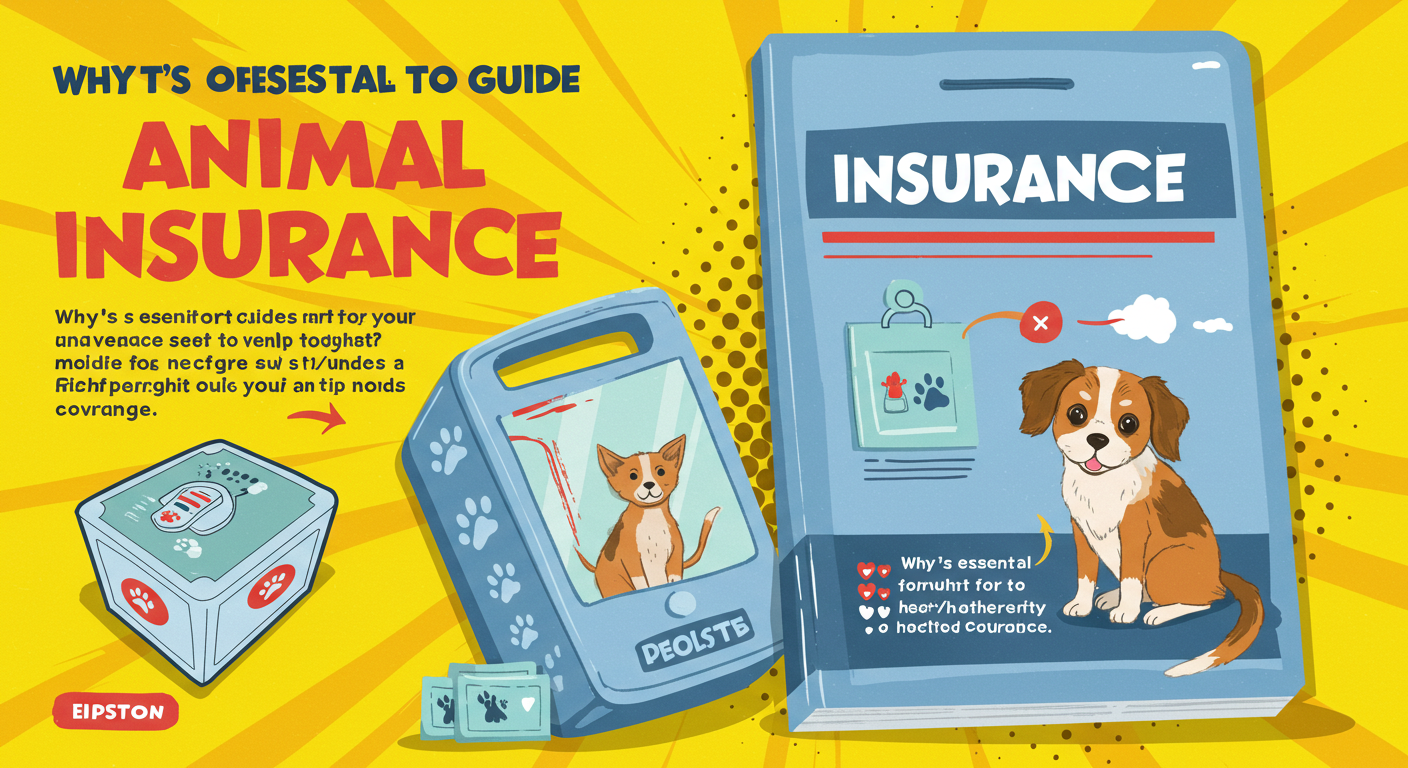Introduction
Animal insurance is becoming an increasingly important aspect of responsible pet ownership. Whether you have a dog, cat, bird, or any other pet, having the right insurance coverage ensures that your furry (or scaly) friend receives the best possible care when faced with illness or injury. In this article, we’ll discuss the various types of animal insurance, why it’s necessary, and how to choose the best policy for your pet’s needs.
What is Animal Insurance?
Animal insurance, also known as pet insurance, is a policy designed to help pet owners manage the costs of veterinary care. This type of insurance helps cover the expenses associated with your pet’s health, from routine check-ups to unexpected accidents or illnesses. With the rising costs of veterinary treatments, having animal insurance can offer peace of mind, knowing that you won’t be left with a hefty medical bill if your pet requires emergency care or long-term treatment.
Types of Animal Insurance Policies
- Accident-Only Coverage
- As the name suggests, this type of policy covers medical expenses for injuries caused by accidents. It’s typically the most affordable option, making it suitable for pet owners who are mainly concerned with the risk of accidents, like car accidents or falls.
- Accident and Illness Coverage
- This is the most common type of pet insurance. It covers both accidents and a wide range of illnesses, from infections to chronic diseases like diabetes or arthritis. Accident and illness coverage is comprehensive and ideal for pets with a higher risk of health issues.
- Wellness Plans
- Wellness plans are designed to cover routine check-ups, vaccinations, flea treatments, and other preventive care. While these plans don’t typically cover emergencies, they can help you save on routine veterinary visits and keep your pet in tip-top shape.
- Comprehensive Coverage
- Comprehensive policies offer the broadest coverage, including accidents, illnesses, and wellness care. These policies are ideal for pet owners who want to ensure that their pets have complete health coverage and protection from any unforeseen medical expenses.
Benefits of Animal Insurance
- Financial Security
- Pet medical expenses can add up quickly, especially if your pet has an ongoing health condition or requires emergency surgery. Animal insurance helps protect your finances by covering these unexpected expenses, allowing you to focus on your pet’s health rather than the cost.
- Access to Better Care
- With animal insurance, you’re not limited by financial constraints when seeking medical care for your pet. Insurance coverage gives you access to higher-quality treatments, ensuring your pet gets the best care available.
- Peace of Mind
- Knowing that you have coverage for both minor and major health issues offers peace of mind to pet owners. Whether your pet needs a routine check-up or surgery for a serious condition, you can rest easy knowing that you’ll have financial support when you need it most.
- Customizable Plans
- Many animal insurance providers offer flexible plans, allowing you to tailor coverage based on your pet’s specific needs. You can adjust your policy to ensure that it suits your budget and your pet’s unique health requirements.
How to Choose the Right Animal Insurance Policy
- Consider Your Pet’s Age and Health History
- If your pet is young and healthy, a basic accident-only policy may be sufficient. However, if your pet has a pre-existing condition or is older, you may want to invest in a more comprehensive policy that covers both illnesses and accidents.
- Compare Coverage Options
- Not all animal insurance policies are created equal. Be sure to compare coverage limits, exclusions, and reimbursement percentages to find a plan that provides the best value for your needs. Pay attention to any caps on coverage for specific treatments or conditions.
- Check for Exclusions
- Make sure to carefully review any exclusions in the policy, such as hereditary conditions or pre-existing health issues that might not be covered. Understanding what’s included and excluded will help prevent surprises down the road.
- Review the Deductibles and Premiums
- Policies vary in terms of deductible amounts and monthly premiums. Be sure to choose a plan with a deductible and premium structure that fits your budget. Some policies allow you to adjust the deductible to reduce the monthly premium or vice versa.
Common Myths About Animal Insurance
- “My pet is too young to need insurance.”
- While it’s true that younger pets are generally healthier, it’s still a good idea to secure insurance early on. Insurance premiums are typically lower when your pet is young, and it’s easier to get coverage before any pre-existing conditions arise.
- “Animal insurance is too expensive.”
- The cost of animal insurance varies based on factors such as your pet’s breed, age, and the level of coverage. While premiums can be high for some pets, there are affordable options available, especially if you’re willing to adjust the policy terms.
- “My pet’s health problems are covered automatically.”
- Not all health conditions are automatically covered. It’s essential to read the fine print of your policy to understand what is and isn’t included. Pre-existing conditions, for example, are often excluded from coverage.
Conclusion
Animal insurance is an invaluable investment for pet owners who want to ensure their pets receive the best possible care without breaking the bank. Whether you’re looking for basic accident coverage or a comprehensive health plan, choosing the right policy can provide financial protection, peace of mind, and access to high-quality veterinary care. Be sure to research different options and select the plan that fits your pet’s health needs and your budget.
By securing animal insurance, you’re not only investing in your pet’s health but also in the bond you share with them, ensuring they live a long, happy, and healthy life.
